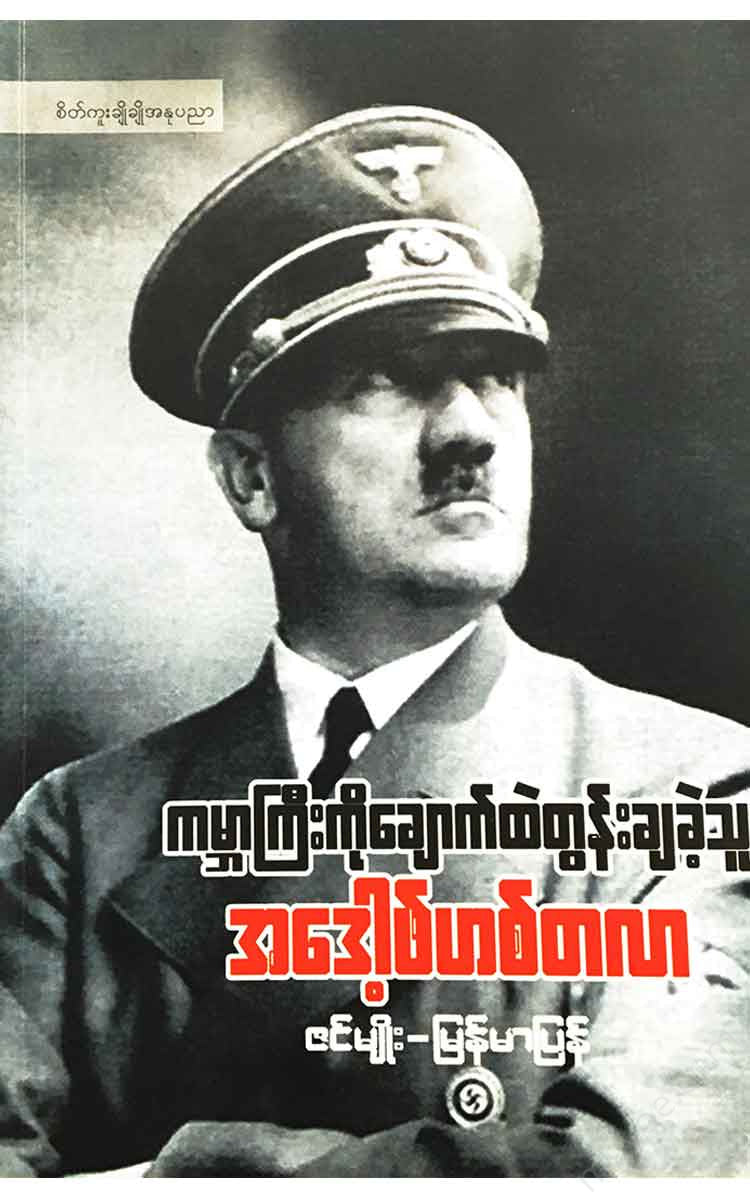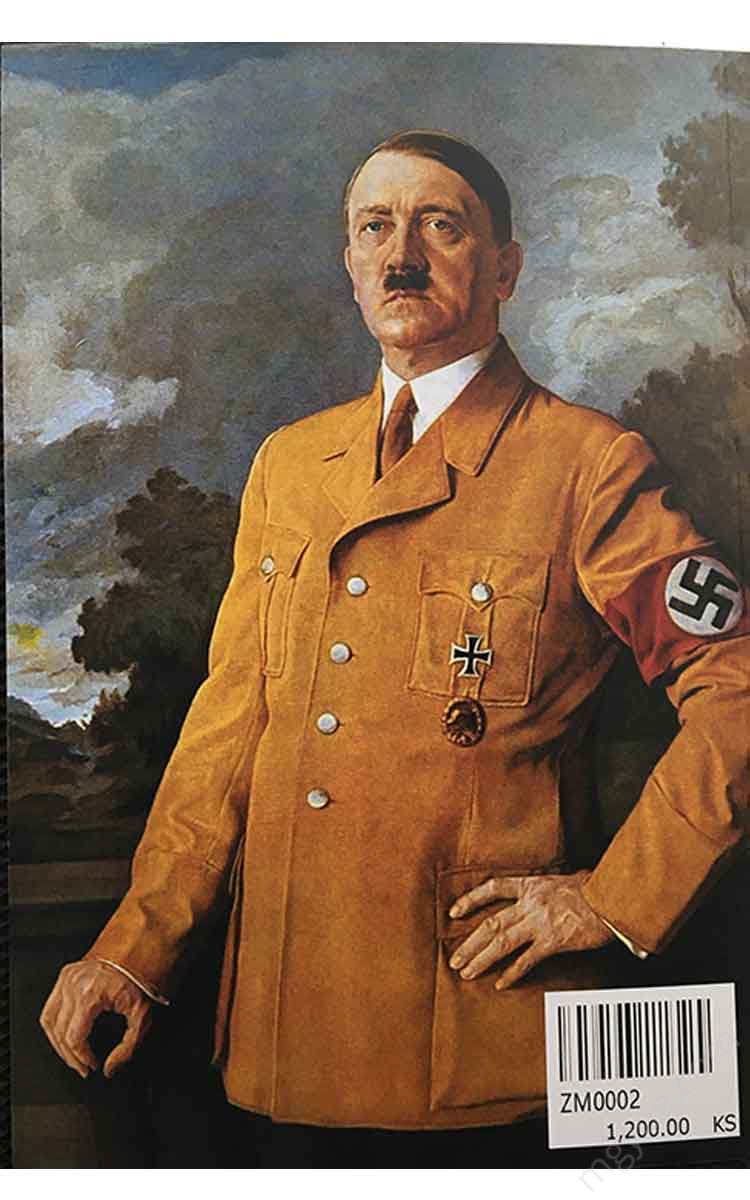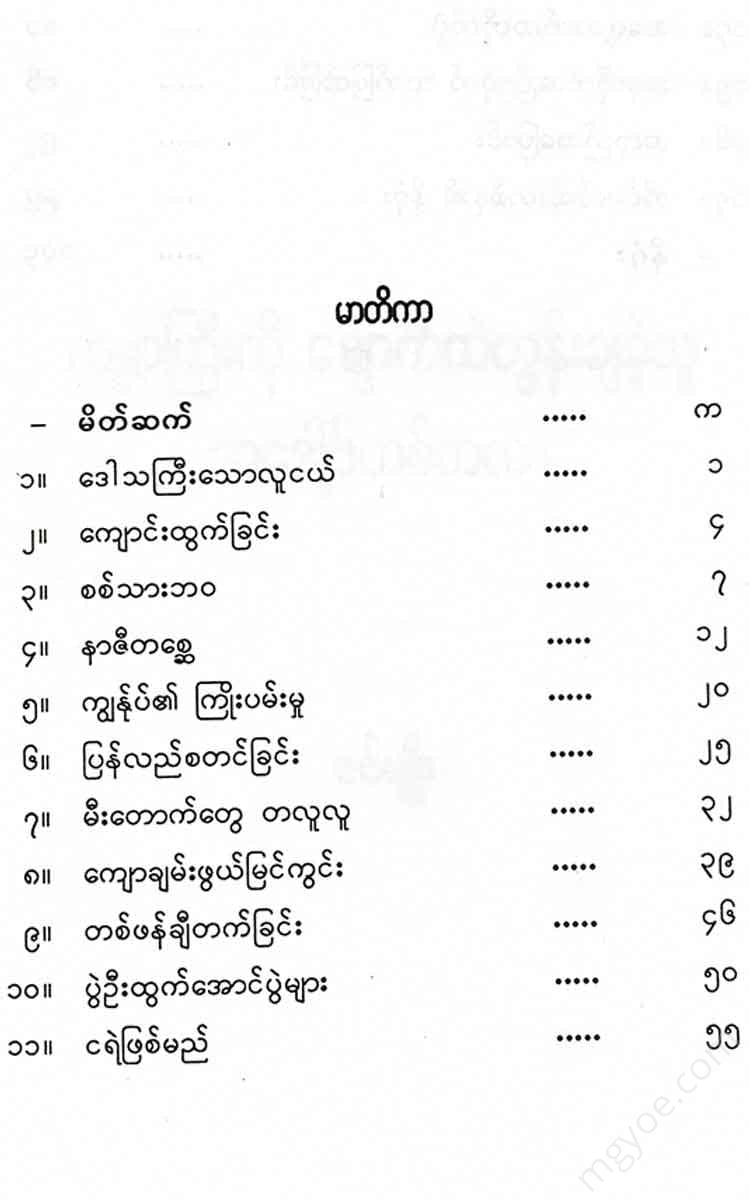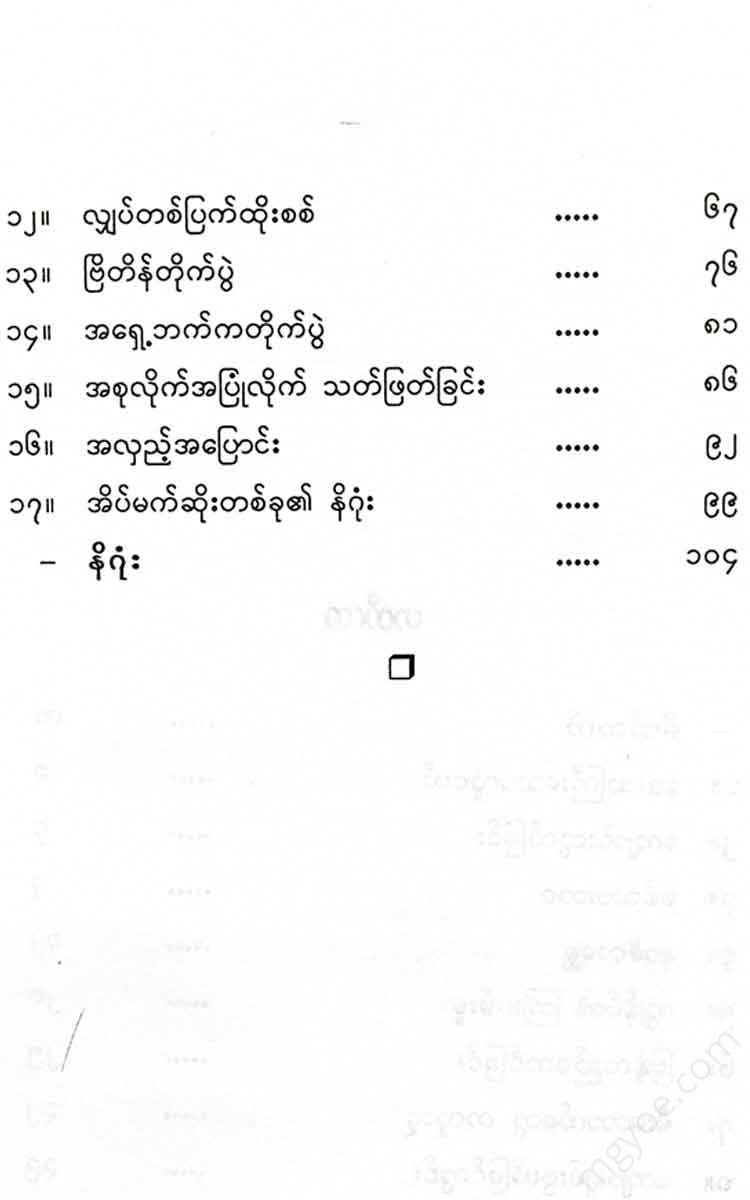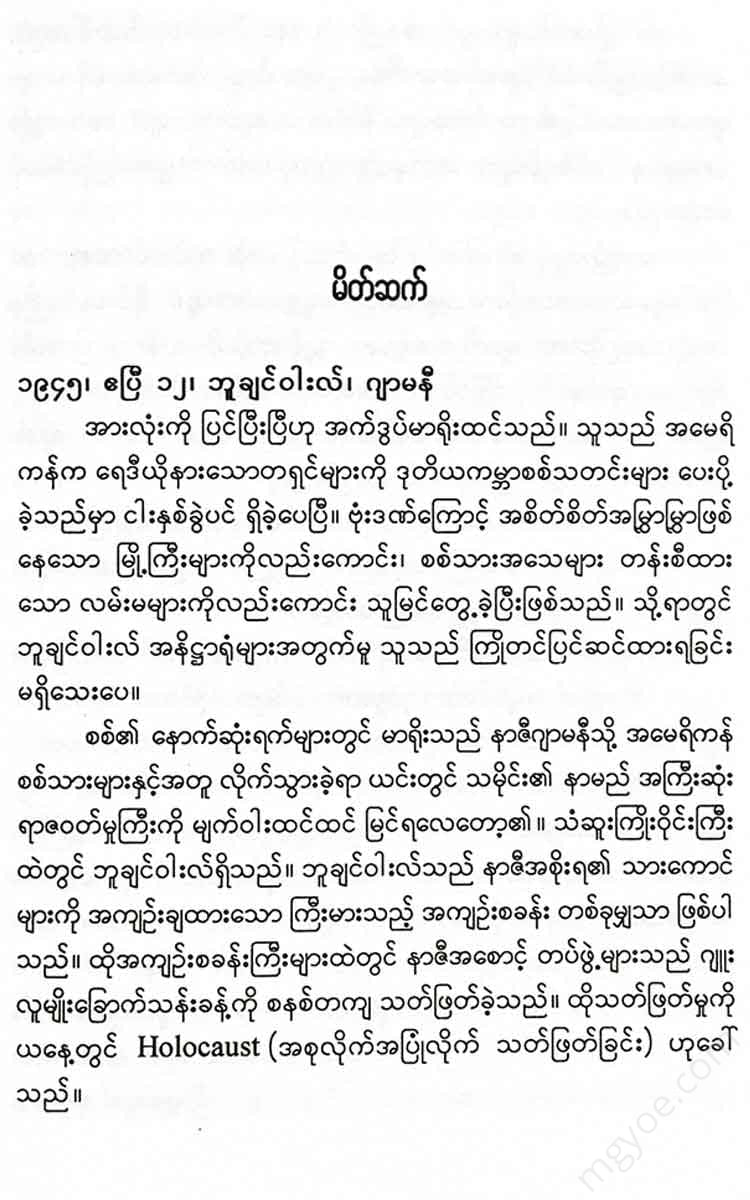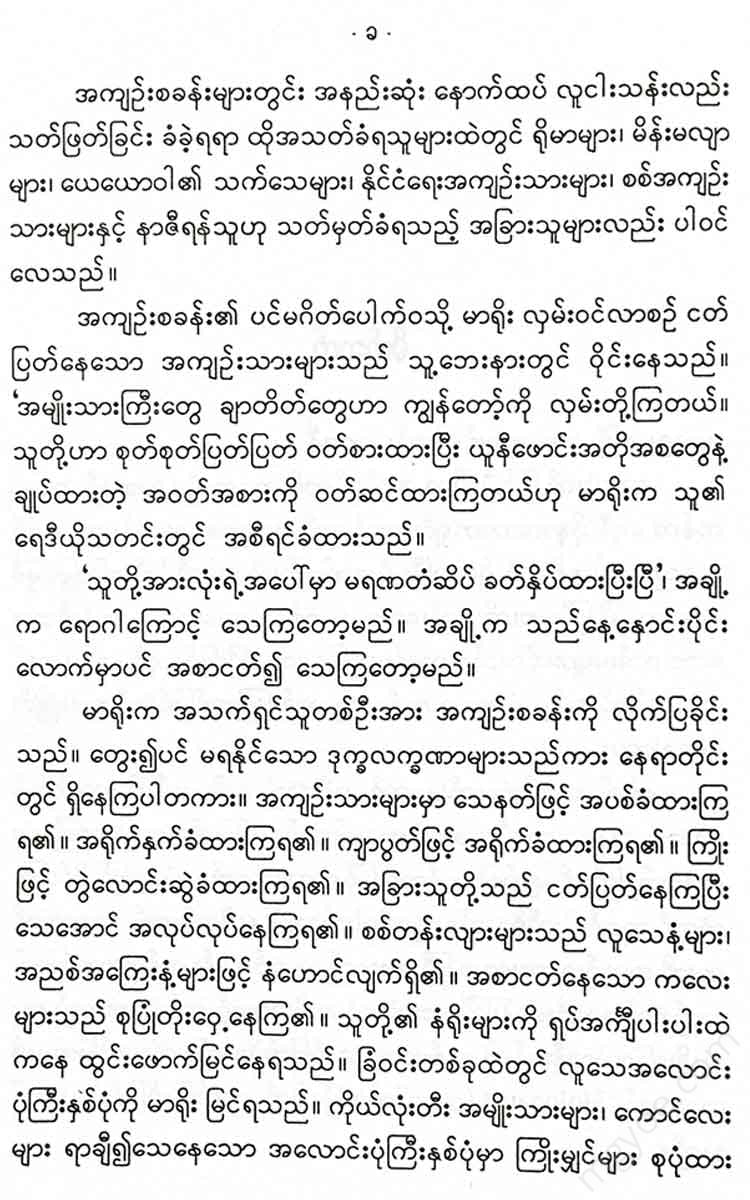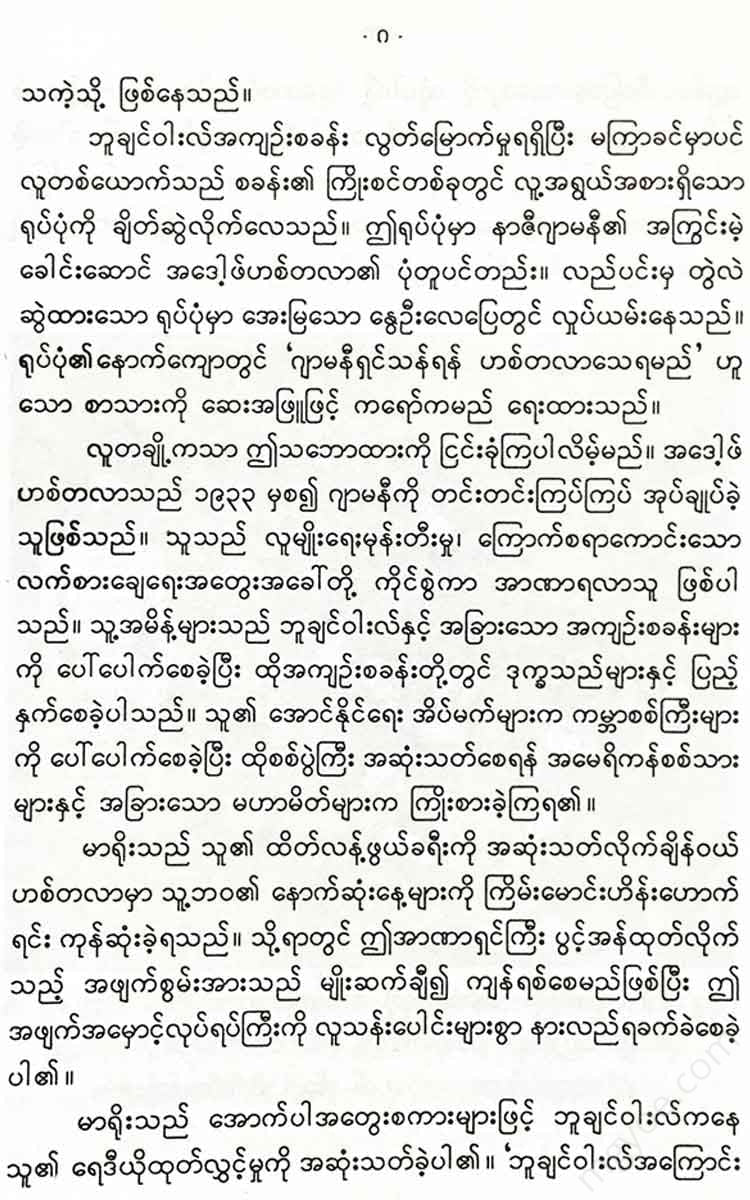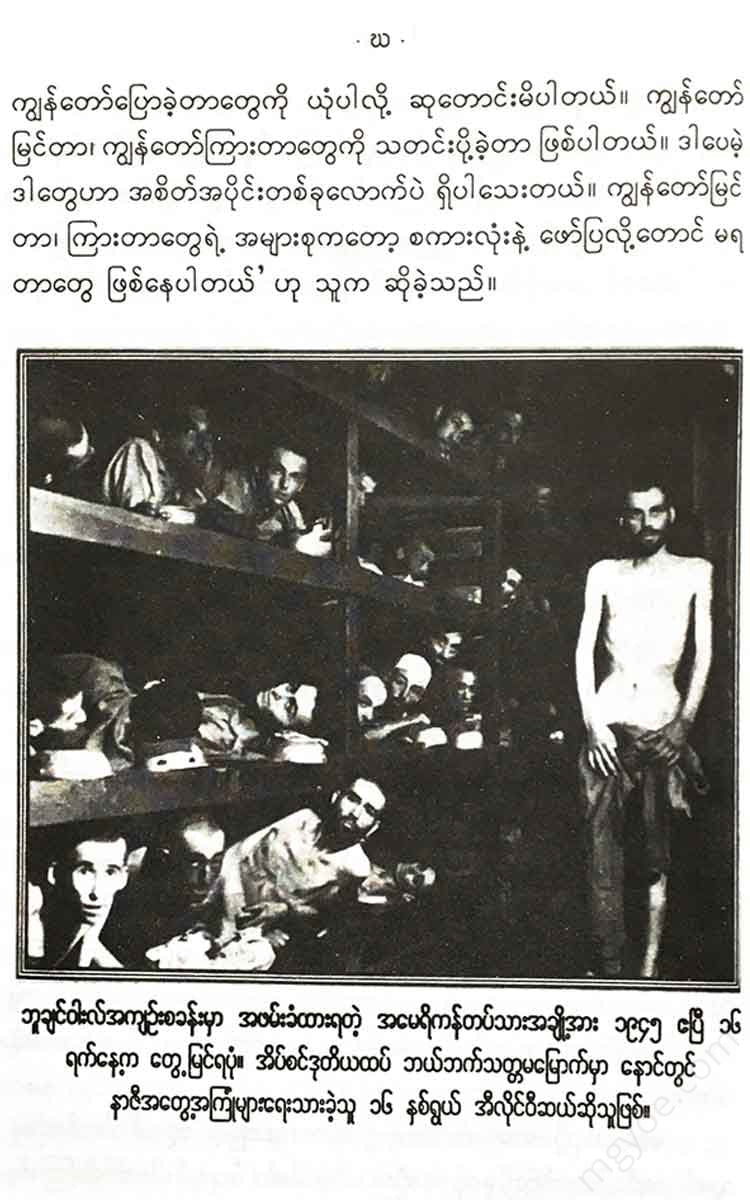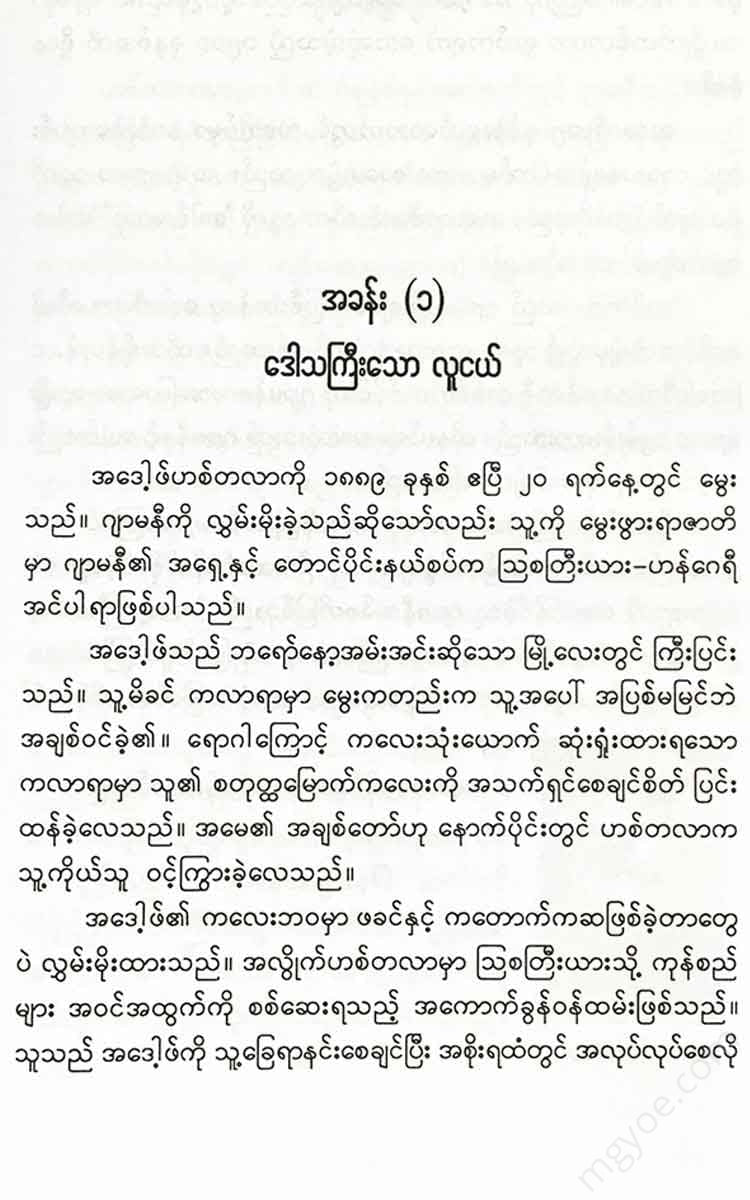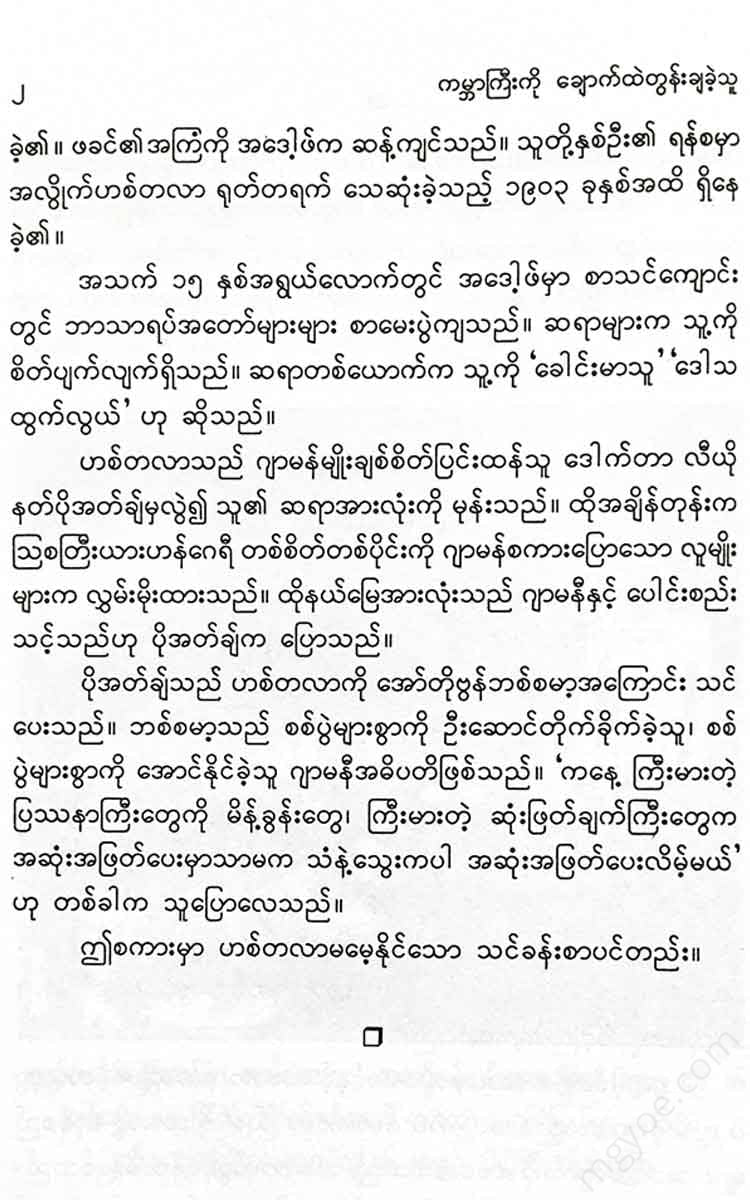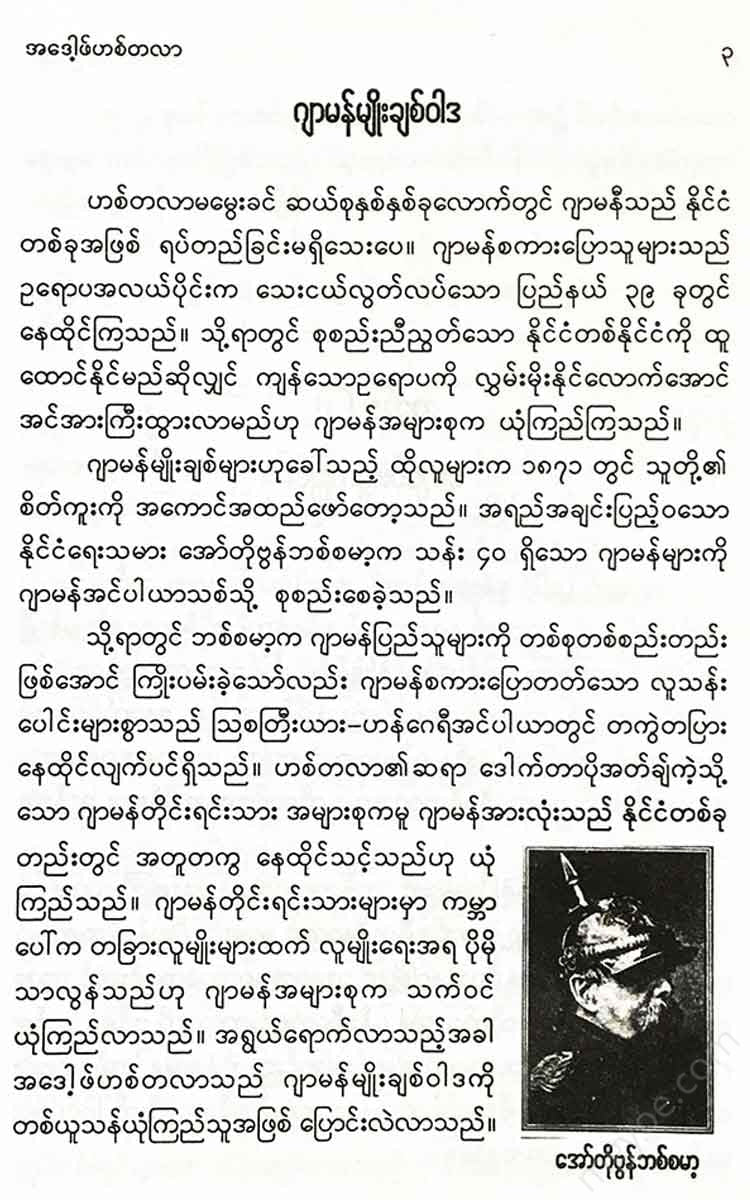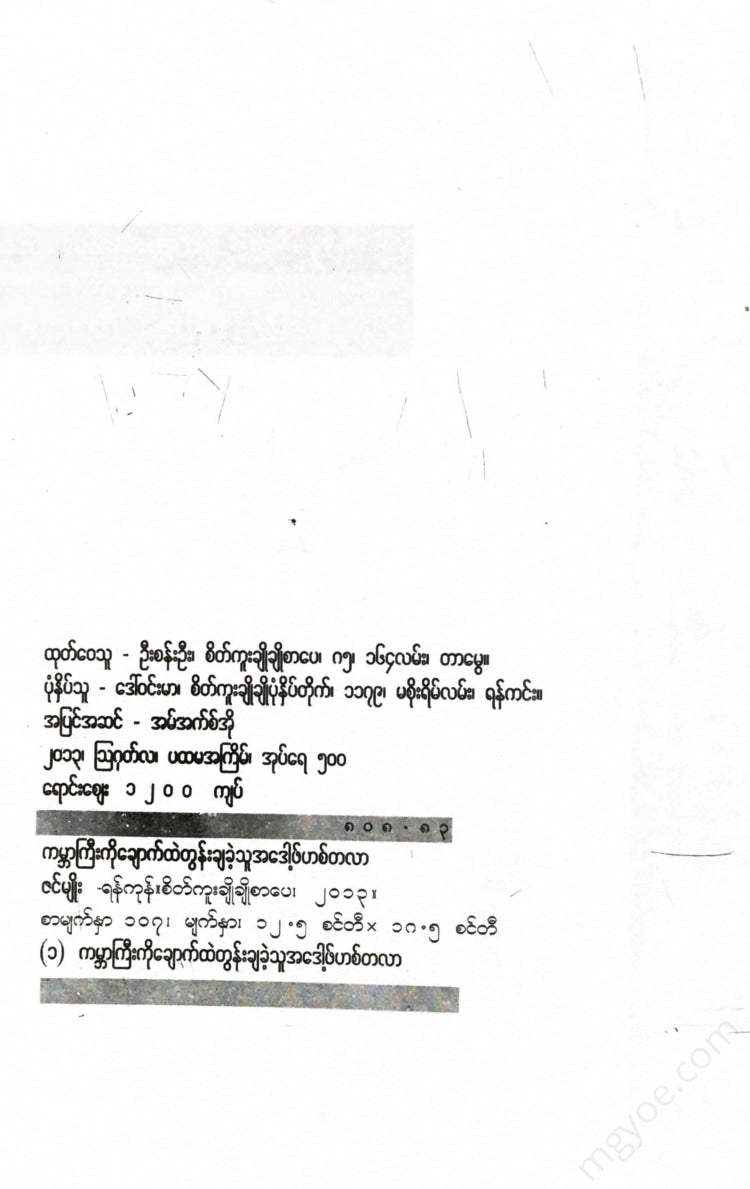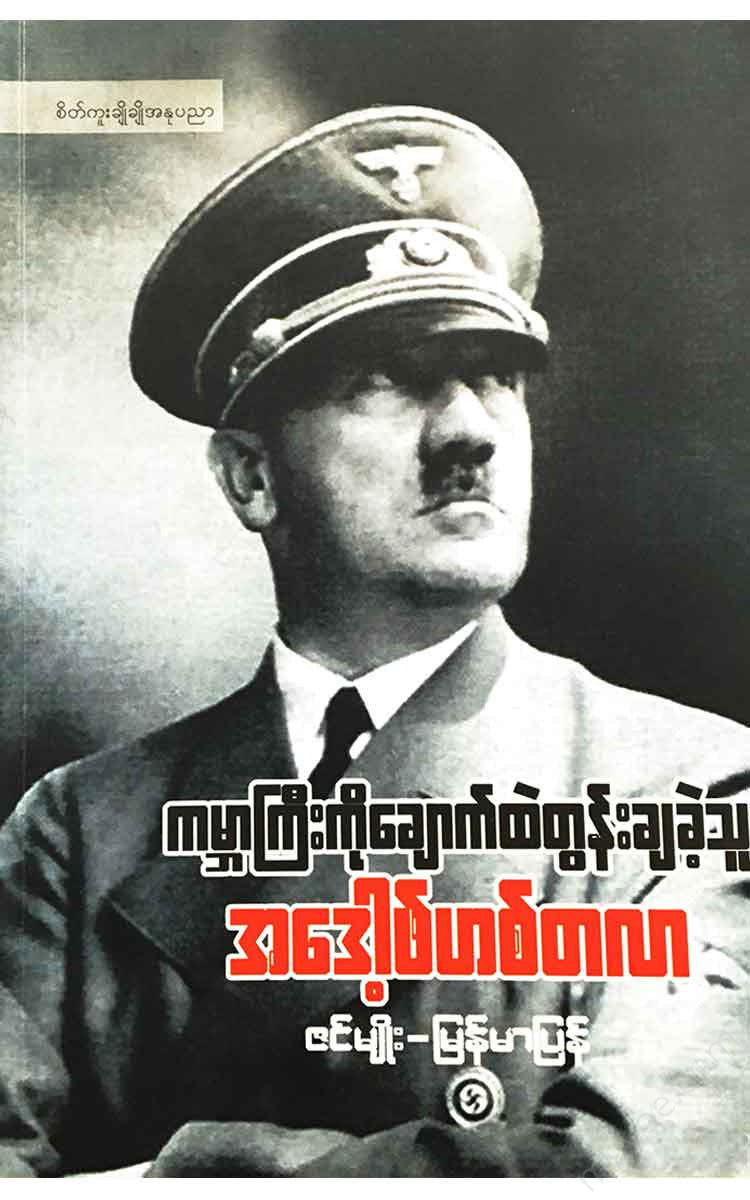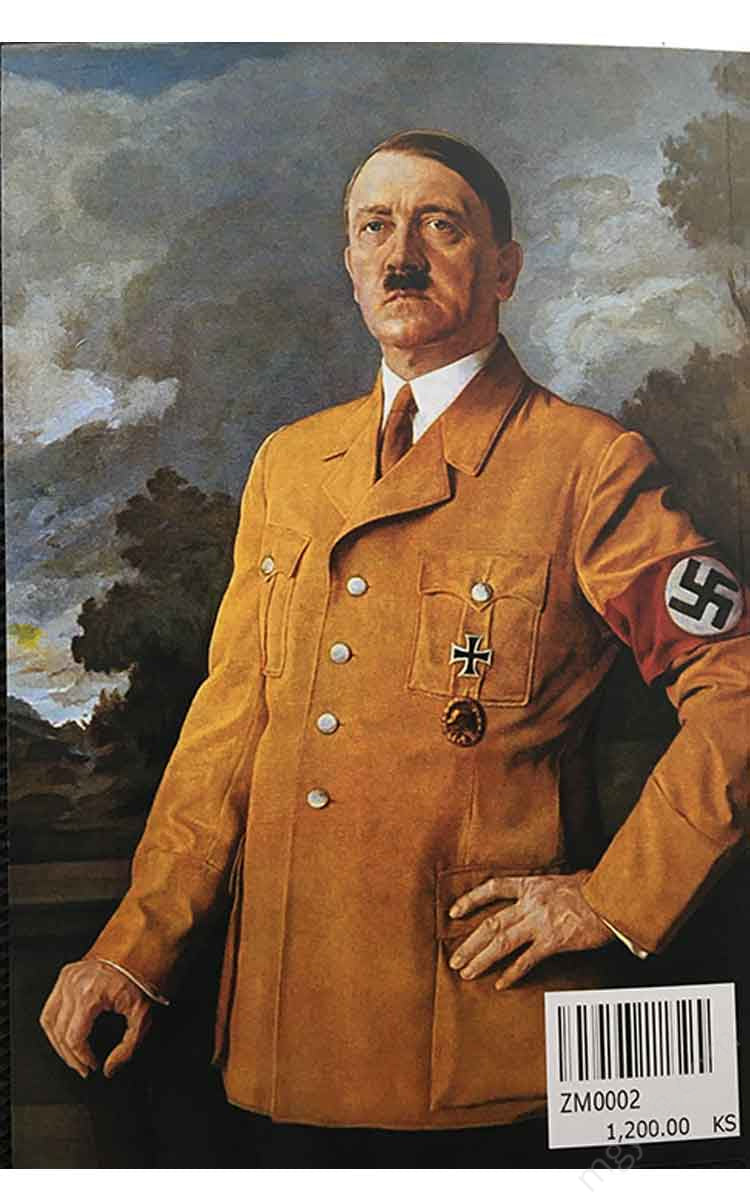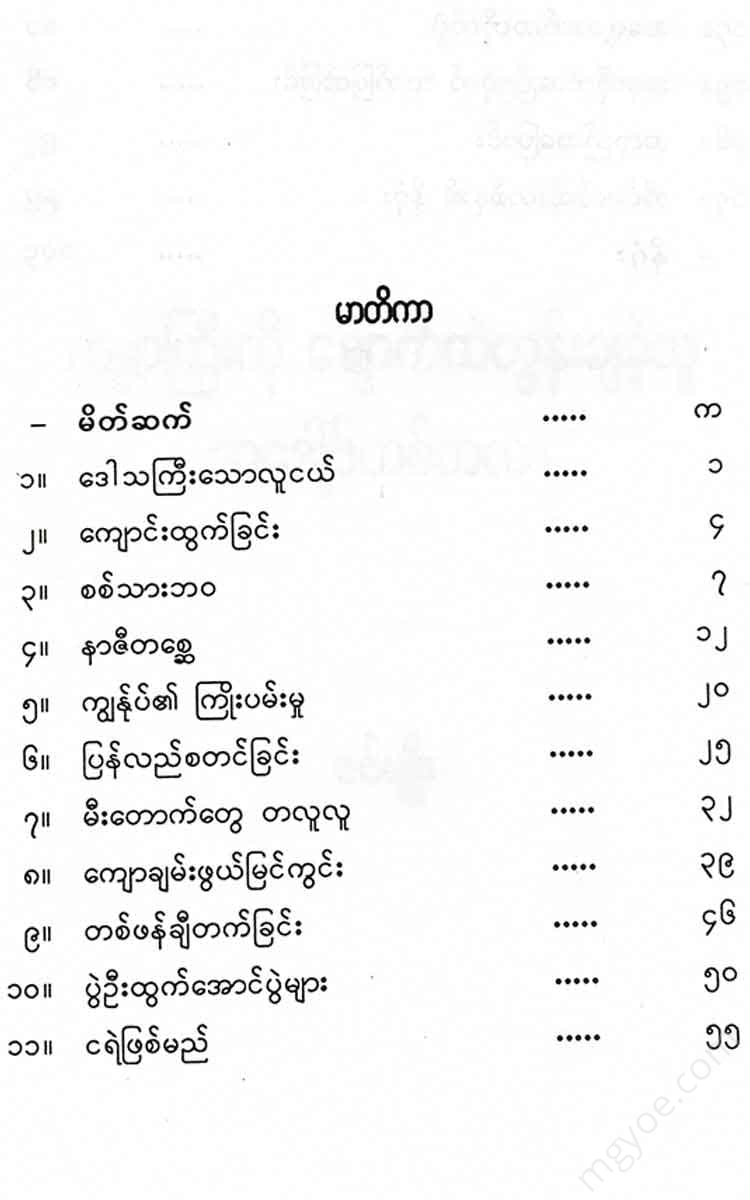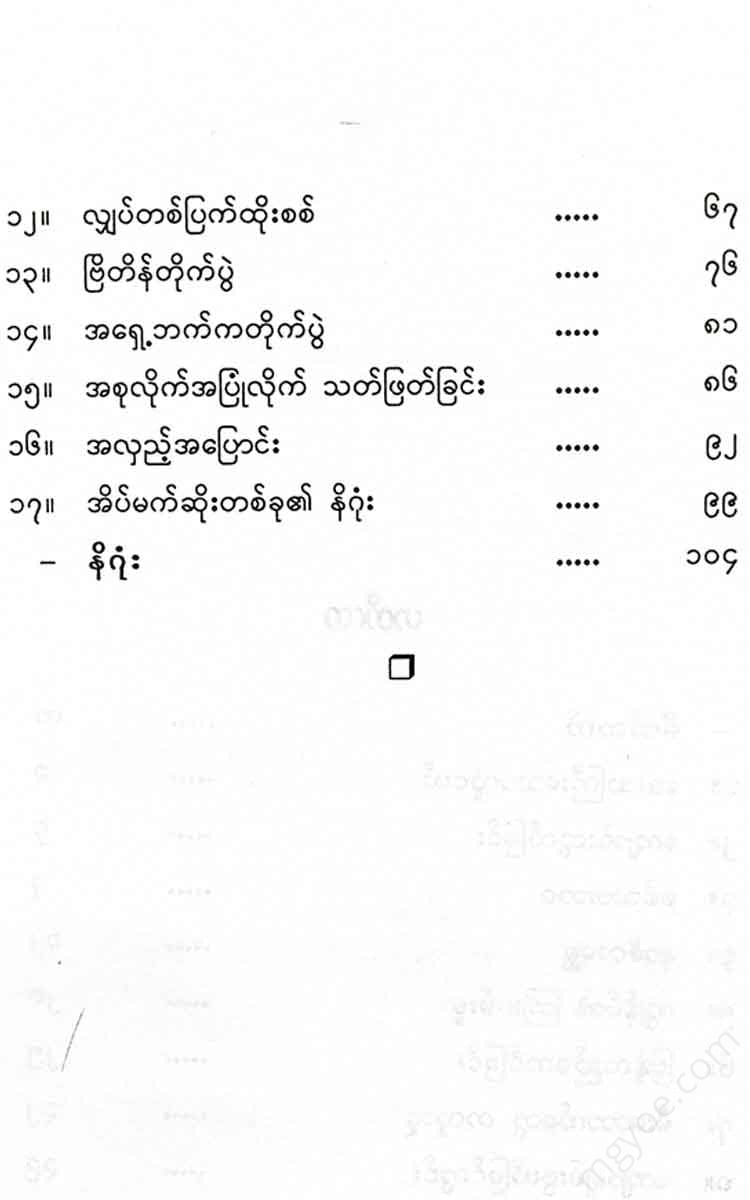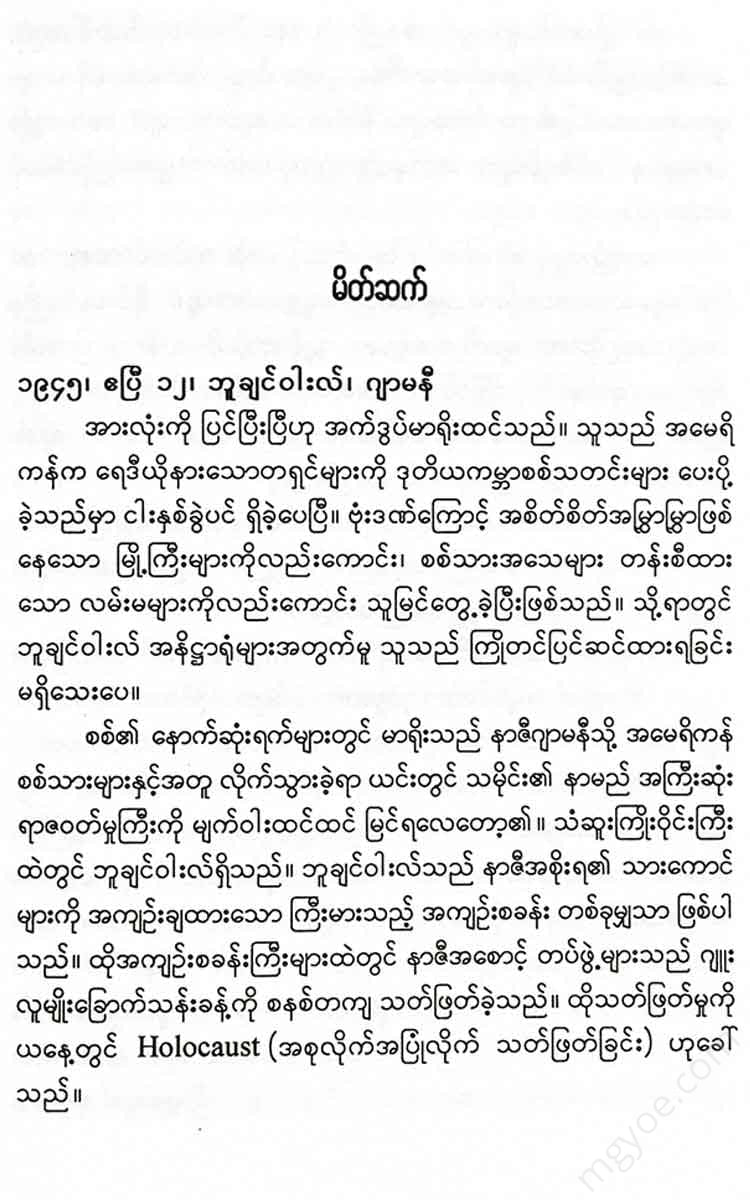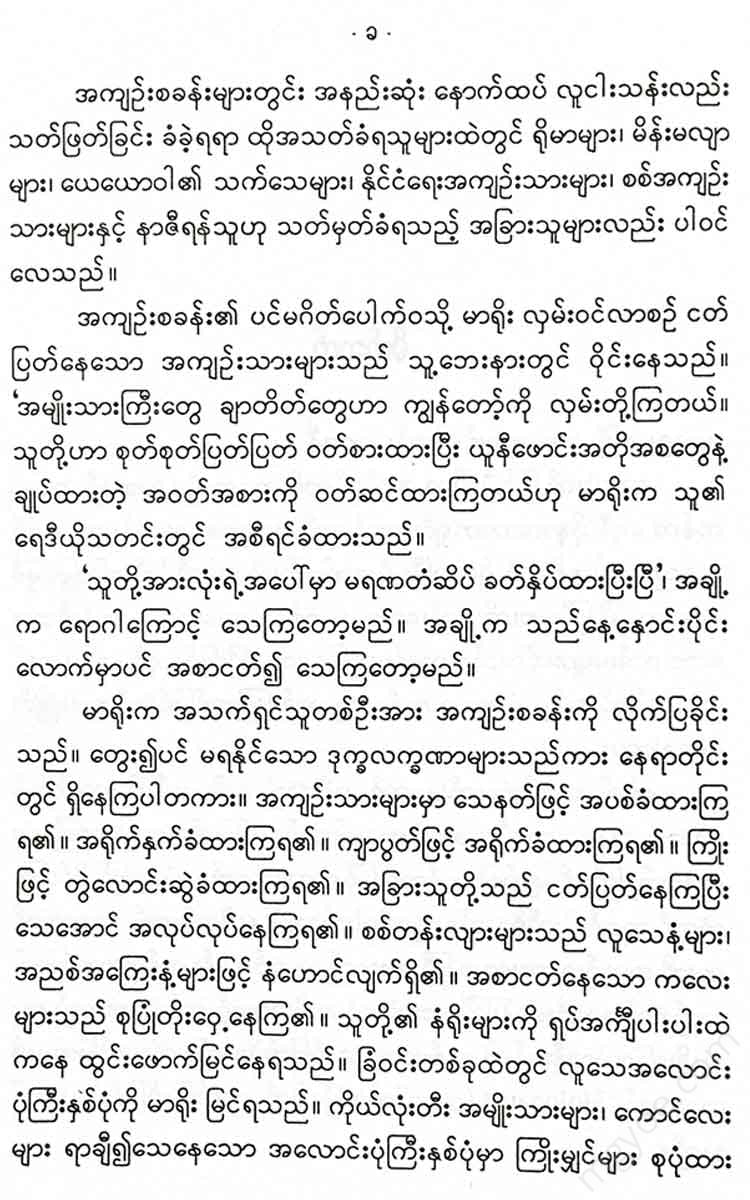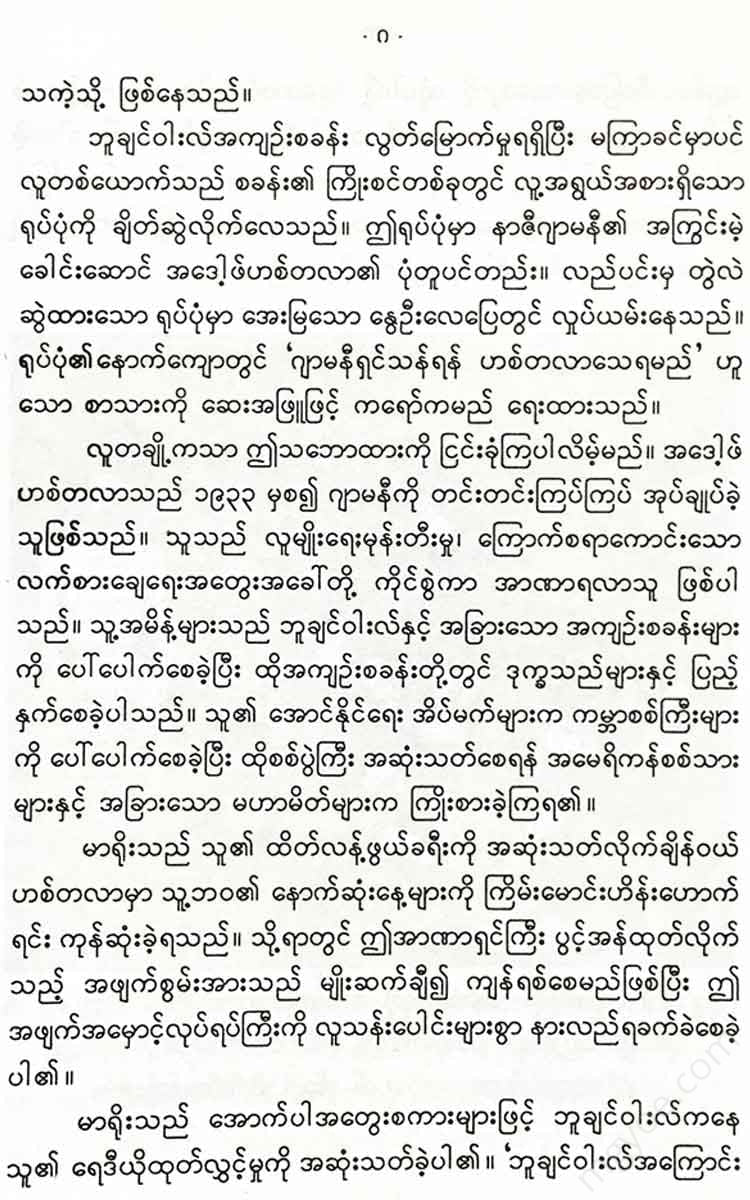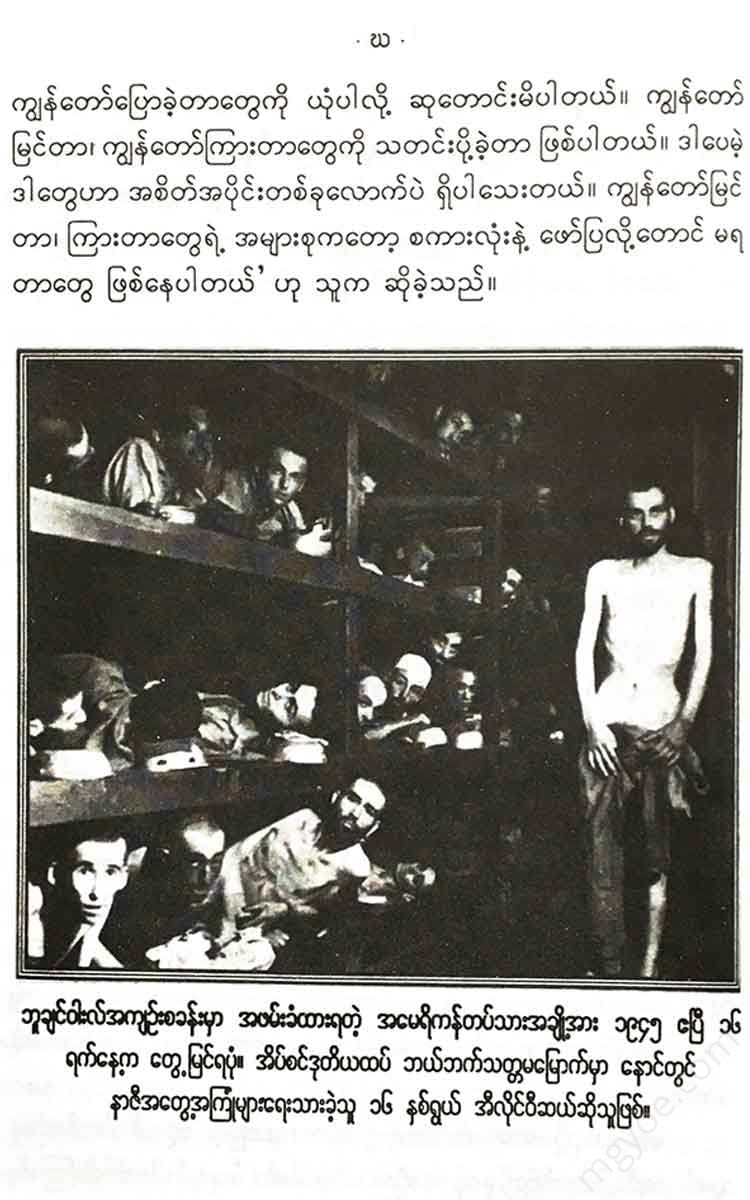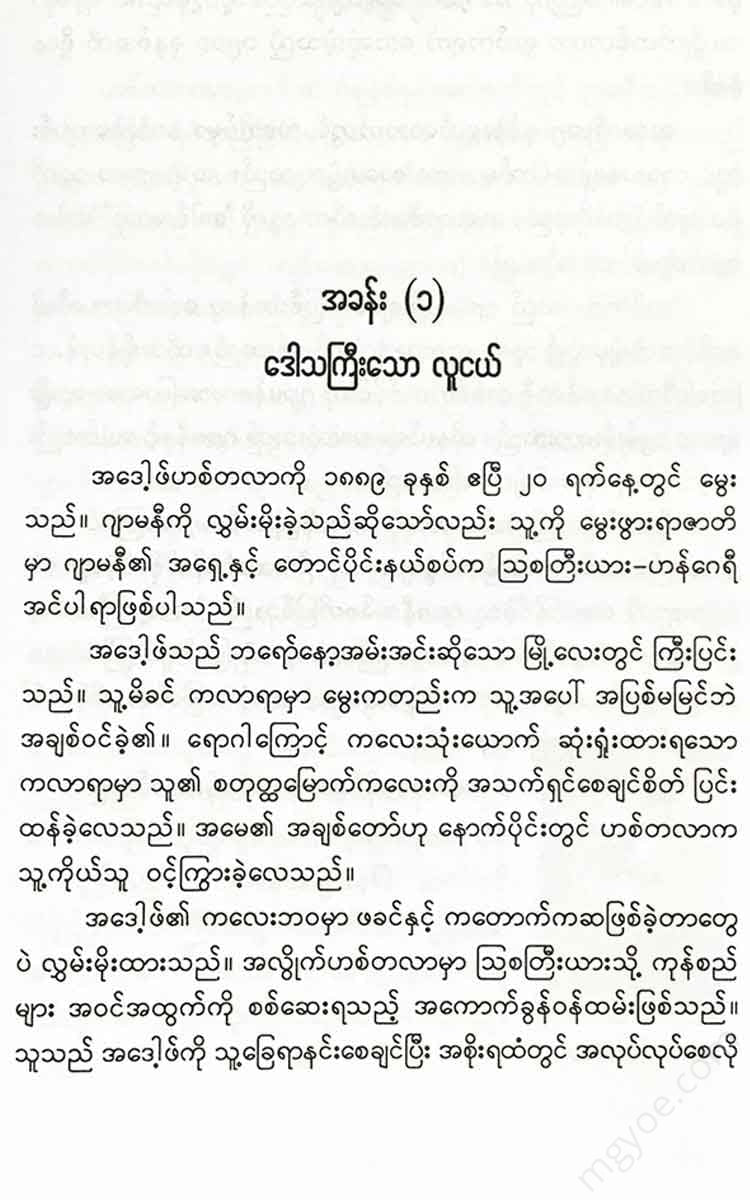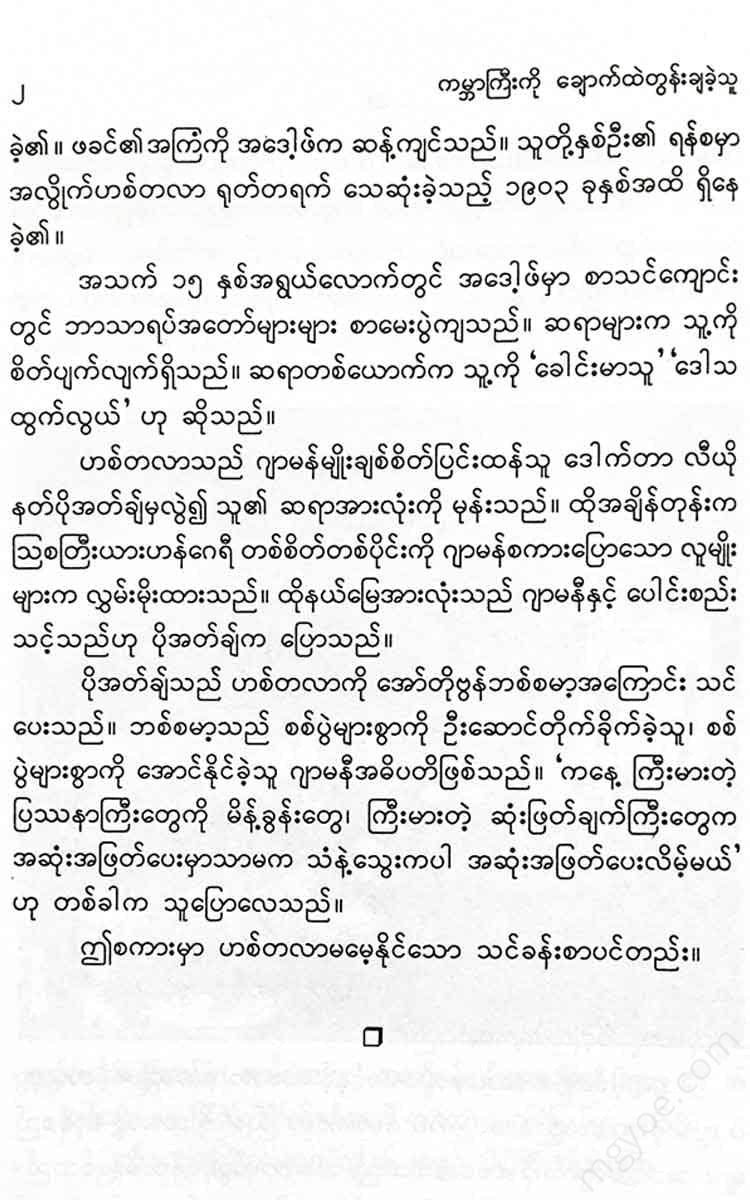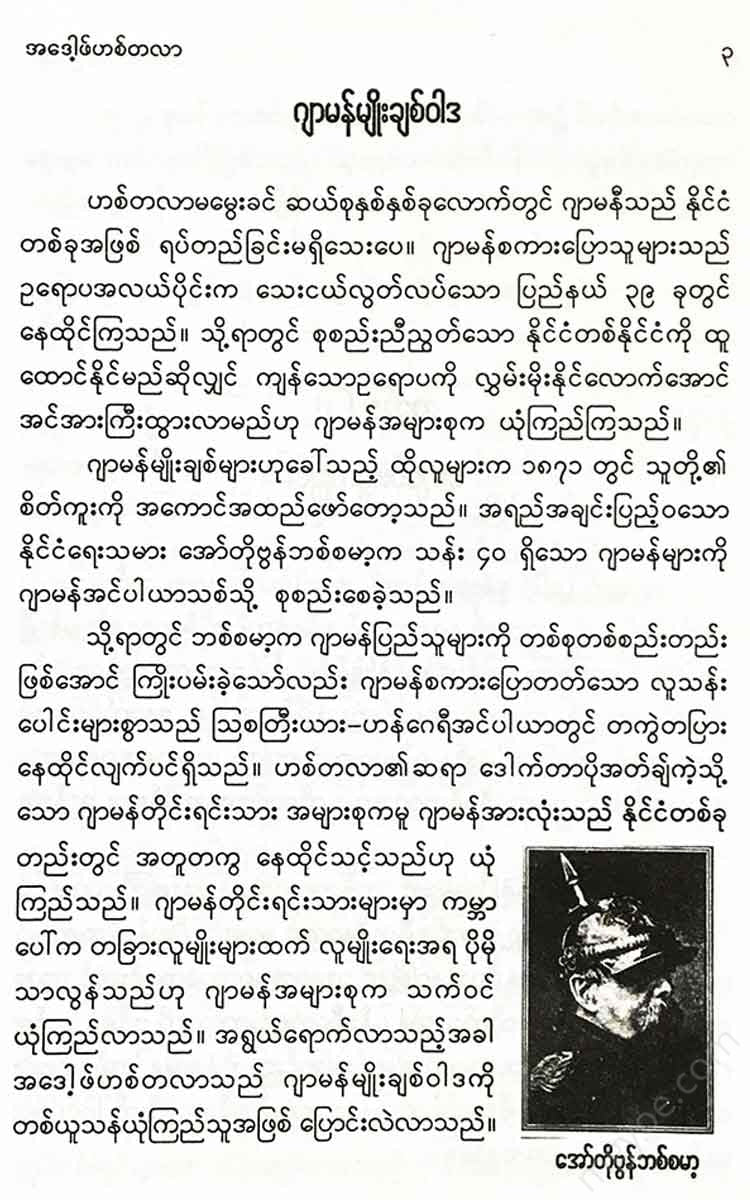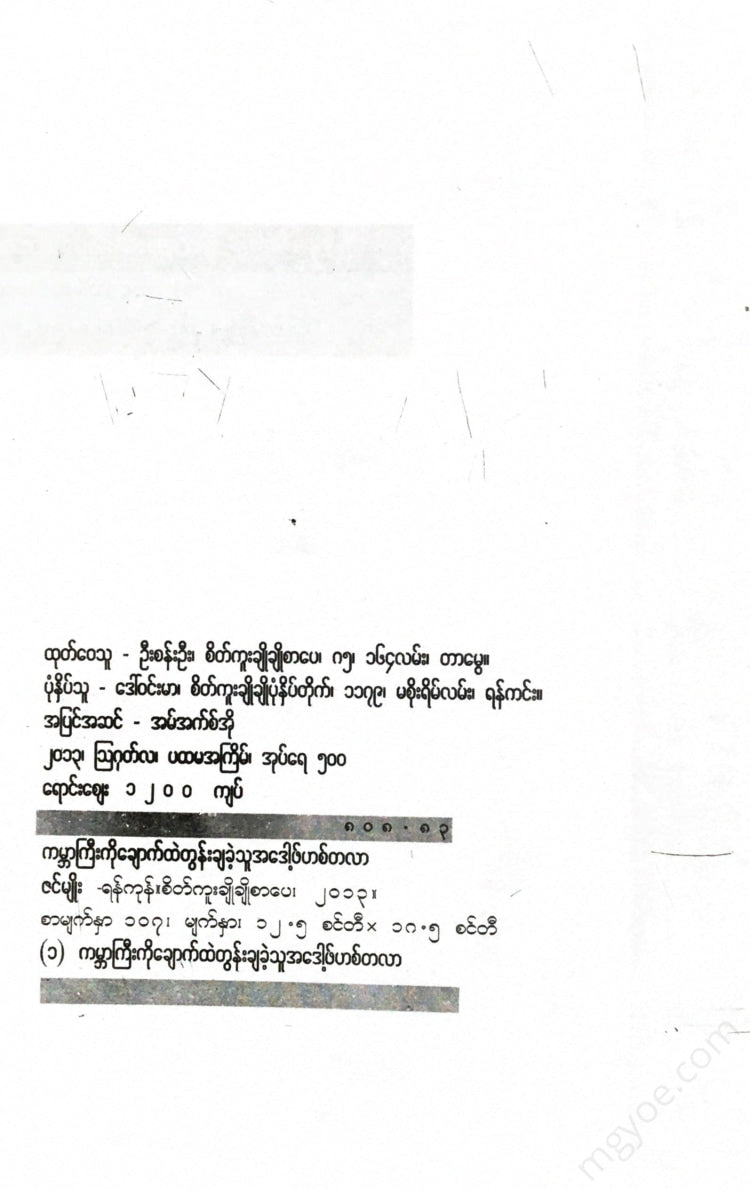စိတ်ကူးချိုချိုစာပေ
Zin Myo - Adolf Hitler, the man who pushed the world into the abyss
Zin Myo - Adolf Hitler, the man who pushed the world into the abyss
Couldn't load pickup availability
Chapter (2)
Dropping out of school
At the age of 16, Adolf Hitler left school. He spent the next two years at home drawing, watching plays, and spending time alone. He later described those days as the happiest of his life. Those happy times came to an end in December 1907, when Klara Hitler died of breast cancer.
After his mother died, Hitler moved to Vienna, Austria. In Vienna, he tried to become a famous painter. He applied to study at the Vienna Academy of Fine Arts. When the art school rejected him, he was furious. “The whole school should be blown up,” he told a friend.
Adolf Hitler
(By the autumn of 1909, Hitler's mother had run out of money. He had to leave his apartment. He lost weight. His hair and beard were becoming stubble. He walked around during the day and slept at night in homeless shelters, parks, or doorways.)
Hitler still refused to work a regular job. He barely made ends meet by selling his paintings. However, his favorite pastime was debating politics. He would often end arguments by calling his opponents "drunkards."
In Vienna, Hitler found his unquenchable rage. The city was large and had a large Jewish population. Jewish merchants and business owners were key to the city's strong economy. More than half of Vienna's doctors and lawyers were Jewish. The Jewish community produced world-famous musicians and writers.
But Jews have been treated with envy and suspicion in European cities for centuries. The same is true in Vienna. A wave of anti-Semitism, or anti-Semitism, is sweeping the city. Popular magazines claim that Vienna is being taken over by Jews. The mayor of Vienna accuses Jewish bankers of controlling the city’s economy.
Hitler stepped right into the city’s anti-Semitic campaign. He blamed the city’s high crime rate on the Jews. He argued that the Jews controlled the art and music worlds. “Now I see Jews everywhere. The more I see them, the more different they seem to me from other people,” Hitler later wrote in his autobiography.
Vienna was “the harshest and most perfect school of my life,” Hitler later said. In May 1913, he decided to leave the city for good. He packed a small suitcase and moved to Munich, Germany. Hitler wanted to live somewhere where there were real Germans. He did not want to be disappointed.
“This city is as familiar to me as if I had lived within its walls for many years,” he later wrote.
Chapter (3)
Military life
A huge cheer echoed through the streets of Munich. On August 2, 1914, thousands of Germans gathered in the city center square to celebrate the start of World War I. Among the jubilant crowd was 25-year-old Adolf Hitler.
A month earlier, an assassin had shot and killed the heir apparent to the Austro-Hungarian Empire. The assassin had ignited a simmering conflict across Europe. The major European powers, one after another, were drawn into the war. On one side were the Central Powers, Germany and Austria-Hungary, and the Ottoman Empire. On the other side were the Triple Alliance, Great Britain, France, and Russia. (The United States later joined the Allies.)
Hitler immediately enlisted as a volunteer for the German army. As a German patriot, he would fulfill his new duty with fanatical love. “I fell on my knees and thanked heaven,” he later wrote.
On August 16, the German army was already fighting on the Belgian-French border. Hitler was reported to his post as the border fighting was raging. Over the next four years, he would fight in more than a dozen fierce battles on the French border. His battalion suffered 3,754 casualties. Yet, somehow, Hitler survived.
On the night of October 13, 1918, Hitler's fighting came to an end. He was temporarily blinded by a poison gas attack. When his eyesight recovered, his pastor told him that Germany had lost the war. Angry sailors, soldiers, and workers rioted in the streets, demanding the abdication of the emperor. The moderate Social Democratic Party took power, promising democracy and workers' rights. On November 11, the new government signed an armistice that ended the war. By the end of November, Germany's defeated ally, the Austro-Hungarian Empire, had disintegrated.
After hearing the news of Germany's defeat, Hitler spent sleepless nights brooding over Germany's defeat. Like the angry German people, he told himself that Germany should not surrender. "Only fools, liars, and criminals expect mercy from the enemy," he wrote. "During those sleepless nights, I grew in hatred. I also hated those responsible for this act."
He blamed the defeat of the war on a group he called the “November Criminals.” He thought the Social Democrats were the main perpetrators. But his anger was not directed solely at a political party. It was more than just a hatred of the Social Democratic Party.
Anti-Semitism began to taint Hitler's worldview. He perceived the Social Democratic Party as being controlled by Jews. He accused Jewish bankers of failing to support the war effort. In his bitter imagination, the German surrender was a secret plot by the majority of Jews to weaken the German state, and if the state was weakened, the Jews planned to take control of the government.
Hitler's explanation for Germany's defeat was both dubious and untrue. When the Social Democrats came to power, the German economy was at its worst. Millions of Germans were unemployed and facing food shortages. The economic crisis forced Germany, no matter who controlled the government, to negotiate peace.
The “Jewish conspiracy” was nothing more than a figment of Hitler’s imagination. During the four years of war, German Jews had already proven their patriotism. Jews outnumbered any other ethnic or religious group in the German army. By the end of the war , an estimated 12,000 Jews had died in the trenches.
But Hitler ignored these facts. He had only hatred. In the future, his mind would focus on hatred. The "November Criminals" had caused Germany to lose the war, he said. Now he wanted revenge on those who had caused it. He was determined to eliminate the Social Democrats, the Jews, and the peace-loving. In his bitter thoughts, he began to think that he was the one who would awaken Germany from its defeat.
